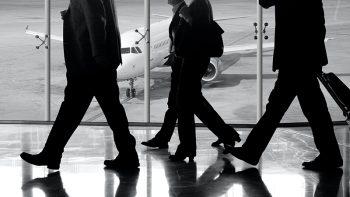IATA is urging AENA, the Spanish air navigation service provider, and the Spanish air traffic controllers to take all measures possible to avoid strike action. Specifically, Giovanni Bisignani, IATA’s Director General and CEO urged Spain’s air traffic controllers to accept AENA’s offer to enter into an arbitration process to resolve their differences.
“This is not the time for strikes. Arbitration is a fair, open and balanced means to settle the differences between AENA and the air traffic controllers. And it would avoid debilitating disruption to Spain’s economy,” said Bisignani.
“The global financial crisis and Europe’s ongoing debt crisis are challenging governments, employers and employees to change in order to build stronger and more robust economies. With 20% unemployment, Spain cannot be a spectator. The economy is weak and it can ill afford the devastating effects of an air traffic control strike on Spanish business, especially tourism,” said Bisignani.
"This is not just theory. When much of Europe’s air space closed for a few days as a result of the ash crisis, airlines lost $1.8 billion in revenue and the cost to economy is estimated at over $5 billion. Even the threat of a strike is seeing people changing plans to avoid Spanish destinations, airports and airspace. That’s lost money for the economy and puts Spanish jobs at risk. Agreeing to arbitration would remove the threat of a strike and restore passenger confidence,” said Bisignani.
IATA says that uniting Europe's air space is critical and following decades of discussion, Europe is finally moving forward with some key elements of the Single European Sky. Each year, the efficiencies generated are expected to save over EUR 5 billion in costs, reduce delays by millions of minutes and reduce CO2 emissions by 16 million tonnes. Many of the changes under contention between AENA and the air traffic controllers are associated with the preparations for Spain to benefit from the Single European Sky.
“Over the last decade, every industry has been challenged to change and to improve efficiency. Airlines improved productivity by 63% but, as the bankruptcy of Mexicana proves, the industry is fragile and even more change is needed. Changes in telecoms, automobiles or pharmaceuticals have all been massive, often times painful, but absolutely necessary to survive. AENA too must change to ensure that Spain has cost-efficient air connectivity to power its economy. The burden of this change includes the controllers,” said Bisignani.





